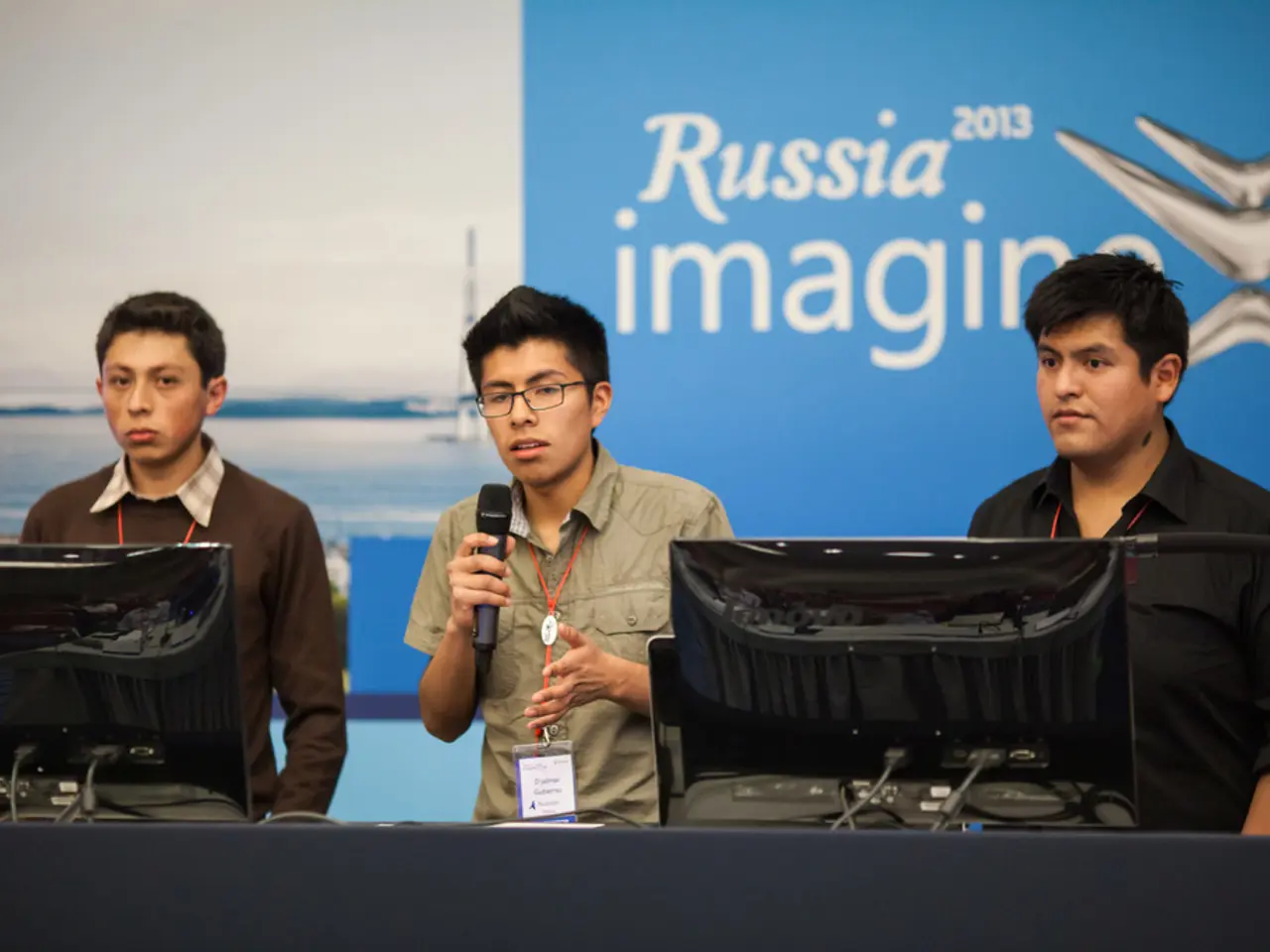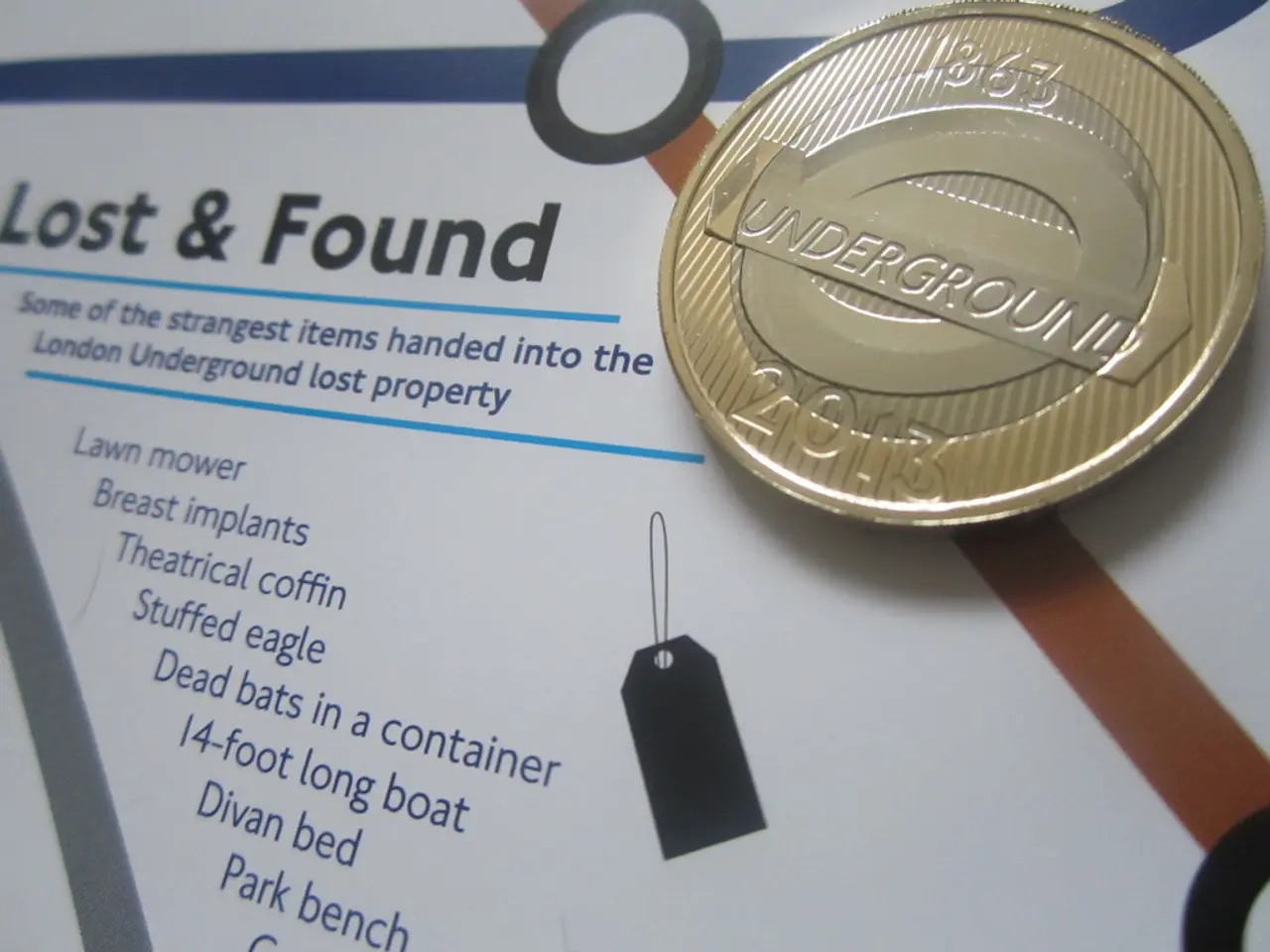Government databases accessed, fuelling widespread demand for fake diplomas in Turkey's diploma scandal.
================================================================================
A vast and intricate criminal network in Turkey has been exposed, forging electronic signatures of high-ranking government officials to produce fraudulent university diplomas, driving licenses, and high school graduation records. The scheme, affecting at least 199 suspects across two indictments, has led to 197 detentions and 37 arrests so far [1][3][5].
The operation's epicentre was a phony educational institution called "Tuzem Akademi" in Ankara, equipped with servers and workstations designed for forgery. Fake diplomas, primarily from law and engineering faculties of universities like Gazi, Atatürk, and Ege, were created and sold for substantial sums, ranging from 250,000 to 2.5 million Turkish lira ($6,100 to $61,000), sometimes using cryptocurrency. Driving licenses were forged at prices around 50,000 lira ($1,229)[3][5].
The impact on education and employment has been significant. Individuals with no legitimate academic qualifications managed to obtain professional licenses and diplomas, including one case of a high school graduate fraudulently becoming a clinical psychologist. The scheme has undermined the credibility of state institutions, with suspects assuming false police narcotics officer identities [3][5].
The network's reach extended to multiple university systems and the alteration of official records, representing severe breaches of educational and employment integrity [3][5]. Authorities are relentlessly investigating and prosecuting the case, emphasising that no crimes or criminals will go unpunished. Digital evidence such as system logs, IP addresses, and transaction records have supported these efforts [1][5].
One of the key figures implicated in the scheme is Ziya Kadiroglu, a former teacher and current doctoral student at Duzce University, who has been identified as the organisation's leader [2]. Kadiroglu has a history of document forgery charges dating back to 1999 and was acquitted in a 2016 case, receiving compensation for wrongful detention [1]. Kadiroglu claims he used the electronic signature only a few times, primarily for thesis work and a court petition [1].
The scheme involved copying electronic signatures of senior officials from critical government institutions, such as the Information and Communication Technologies Authority (BTK), Higher Education Council (YÖK), and Ministry of National Education (MEB) [1]. The network allegedly collaborated with employees at two electronic certificate providers to gain unauthorized access to government databases [1].
The charges filed against suspects include irregular e-signature production, unauthorized access to public systems, arranging fake diplomas, increasing grade point averages, arranging fake driver's licenses, and changing written driving test and steering wheel grades [1]. Kadiroglu worked as a project coordinator at the International Agriculture Food Confederation in 2021-2022 and obtained an e-signature from a company called "E-Guven" during his doctoral studies [2].
Interestingly, the investigation began with an internal university audit, and no teachers working in schools affiliated with MEB were among the suspects [1]. The Presidential Communications Directorate's Disinformation Combat Center (DMM) has denied the claim that 400 academics were irregularly appointed [1].
The scheme's sophistication is demonstrated by the use of fake IDs with officials' names but suspect photos, fake phone numbers, and collusion from electronic certificate providers [1][5]. As the investigation continues, authorities aim to dismantle the network and restore trust in official credentials [1][3][5].
- The phony educational institution at the heart of the criminal network, "Tuzem Akademi," is located in Ankara, Turkey.
- Istanbul appears to be outside the reach of this specific criminal network, as it does not seem to be mentioned in the context of the scheme.
- The Turkish government has been affected by the unauthorized production and alteration of electronic signatures by the criminal network.
- The Turkish lira is the currency used in the illicit transactions, with prices for fraudulent documents ranging from $6,100 to $61,000.
- The Turkish case, involving the assistance of electronics certificate providers and the forgery of official documents, has potential implications in the realm of digital security and international co-operation with organizations like NATO and the General News media.




